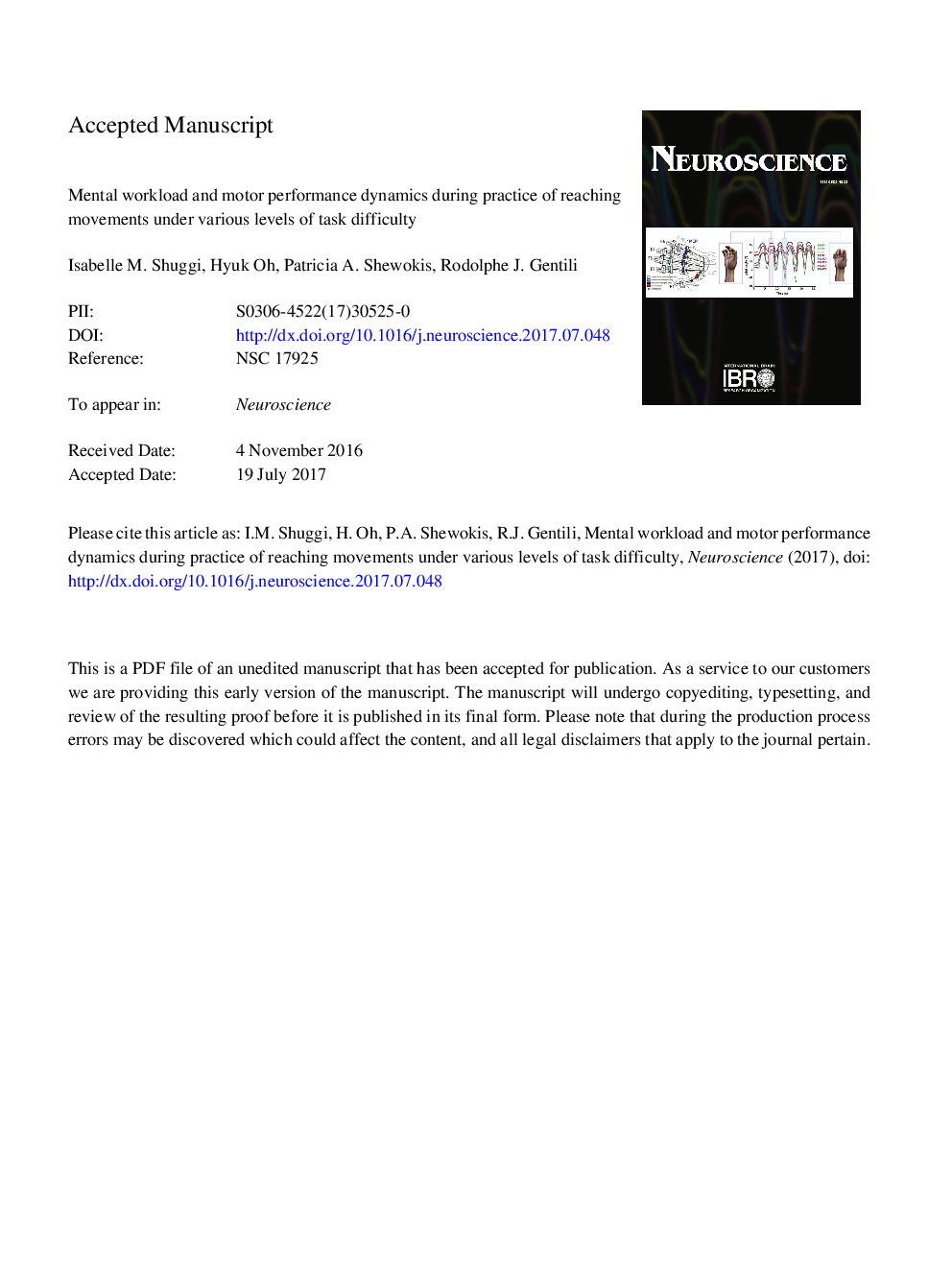ترجمه فارسی عنوان مقاله
حجم کاری ذهنی و دینامیک عملکرد موتور در طول تمرین رسیدن به حرکات در سطوح مختلف مشکلات کاری
عنوان انگلیسی
Mental workload and motor performance dynamics during practice of reaching movements under various levels of task difficulty
| کد مقاله | سال انتشار | تعداد صفحات مقاله انگلیسی |
|---|---|---|
| 157662 | 2017 | 45 صفحه PDF |
منبع

Publisher : Elsevier - Science Direct (الزویر - ساینس دایرکت)
Journal : Neuroscience, Volume 360, 30 September 2017, Pages 166-179

